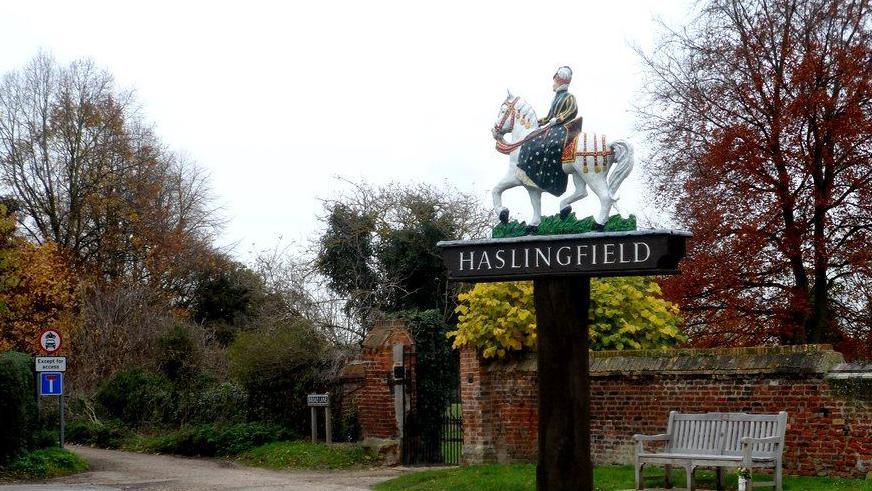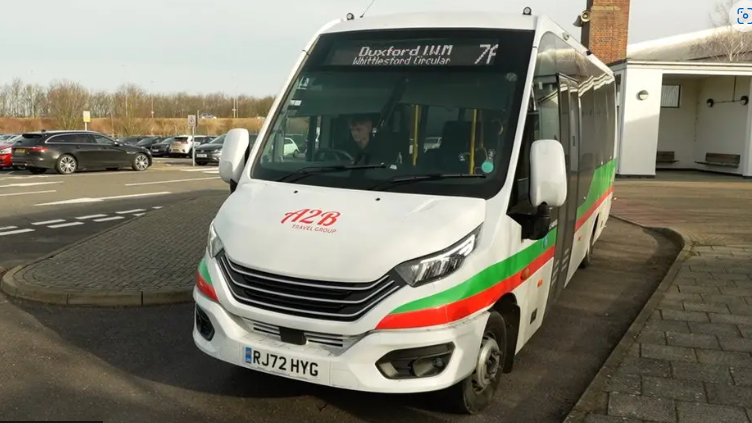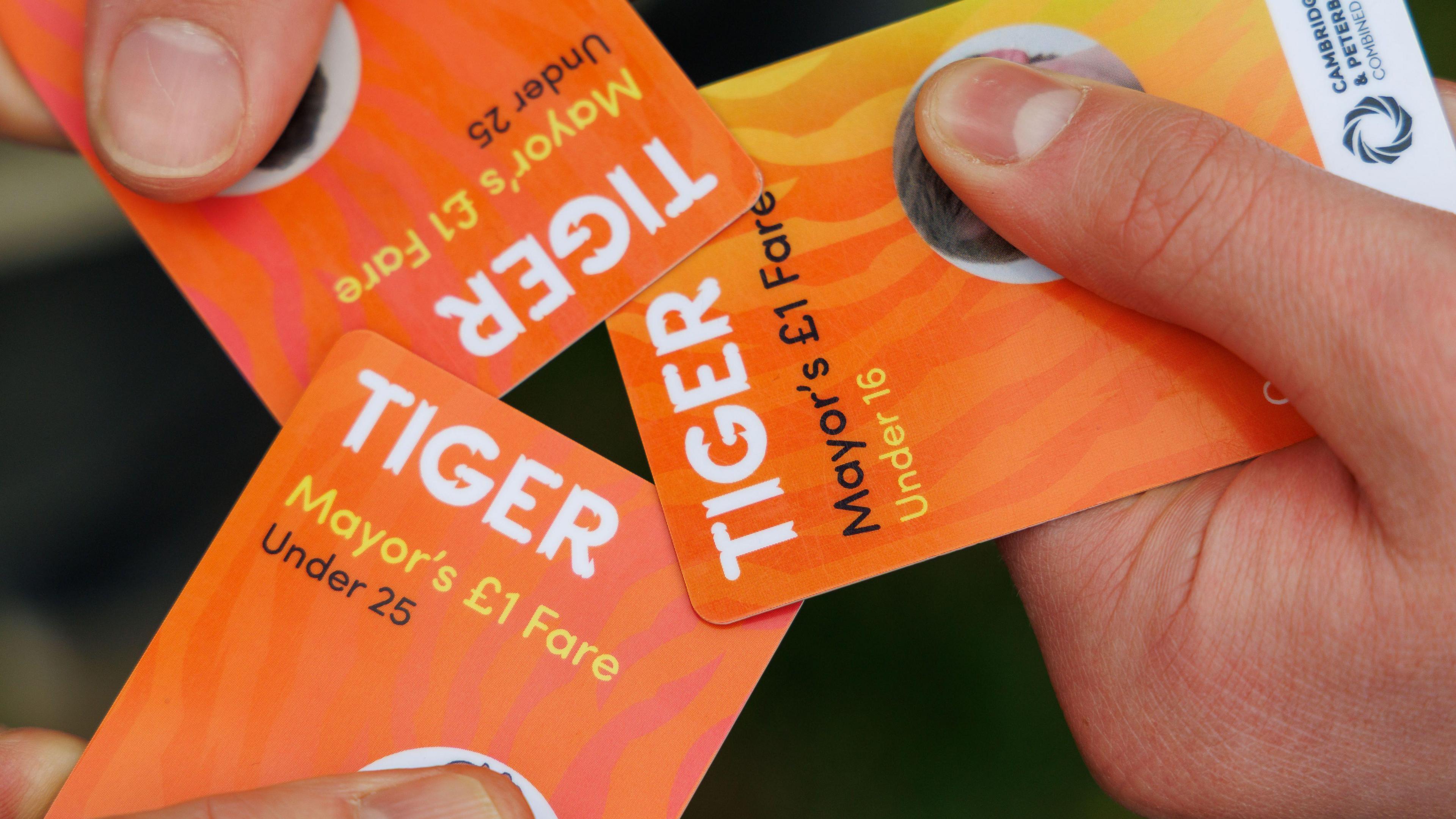Rural bus route cost £180 per passenger to run

A once-weekly bus from Haslingfield cost more than £180 per passenger last year
- Published
An authority is looking into reasons why a rural bus route cost £180.32 per passenger to run last year.
The number 15 between Haslingfield, Cambridgeshire and Royston, Hertfordshire, cost £50,668.61 in the year to April 2025 and carried 281 passengers.
The Cambridgeshire and Peterborough Combined Authority (CPCA) published the data ahead of a meeting looking into ways to fund its Tiger Pass discounted scheme for young people.
The authority is planning on ending a cap on local bus fares early to extend £1 bus travel for under-25s, which it said "without action ... will cease".
Six bus routes in Cambridgeshire cost more than £50 per passenger to run last year, according to a report, external being presented to the CPCA on Tuesday, including:
The 8A between March and Cottenham (£100.33 per passenger)
The 13B between Nosterfield End and Linton (£98.47 per passenger)
The 31 between Cambridge and Fowlmere (£76.89 per passenger)
The 26 between Royston and Cambridge (£71.76 per passenger)
And 68 between St Ives bus station and Boxworth (£59.48 per passenger)
An additional three on-demand routes launched in January, which meant data did not cover the full year, cost £180.11 per passenger in South Cambridgeshire, £74.11 in East Cambridgeshire and £65.68 in Fenland.
The report said the authority was working with the bus operator to understand why passenger numbers on the once-weekly number 15 bus had dropped from 400 to 281 in a year.
Some services became better value to run, including the number18 between Newmarket and Teversham, which was £27.93 cheaper per passenger than the year before.
At Tuesday's meeting, the CPCA will discuss ways to extend the Tiger Pass scheme beyond this autumn to March, at an expected cost of £2.28m.
The transport committee will also discuss ways to make the scheme permanent.
To extend Tiger Passes, it will be asked to axe the locally-funded £2.50 bus fare cap earlier than planned, in September.
The CPCA is planning to franchise the region's bus network, meaning it will eventually take control of fares, routes, timetables and service standards.
A Combined Authority spokesperson said: "Under the budget set in January 2025, the local fare cap is already due to end in December and funding for the current, temporary Tiger Pass, will run out in November.
"Without action, £1 fares for the under-25s will cease."
A final decision on the plans will be made by the CPCA board on 22 July.
Get in touch
Do you have a story suggestion for the East of England?
Follow East of England news on X, external, Instagram, external and Facebook: BBC Beds, Herts & Bucks, external, BBC Cambridgeshire, external, BBC Essex, external, BBC Norfolk, external, BBC Northamptonshire, external or BBC Suffolk, external.
- Published6 March

- Published12 May

- Published5 August 2024
